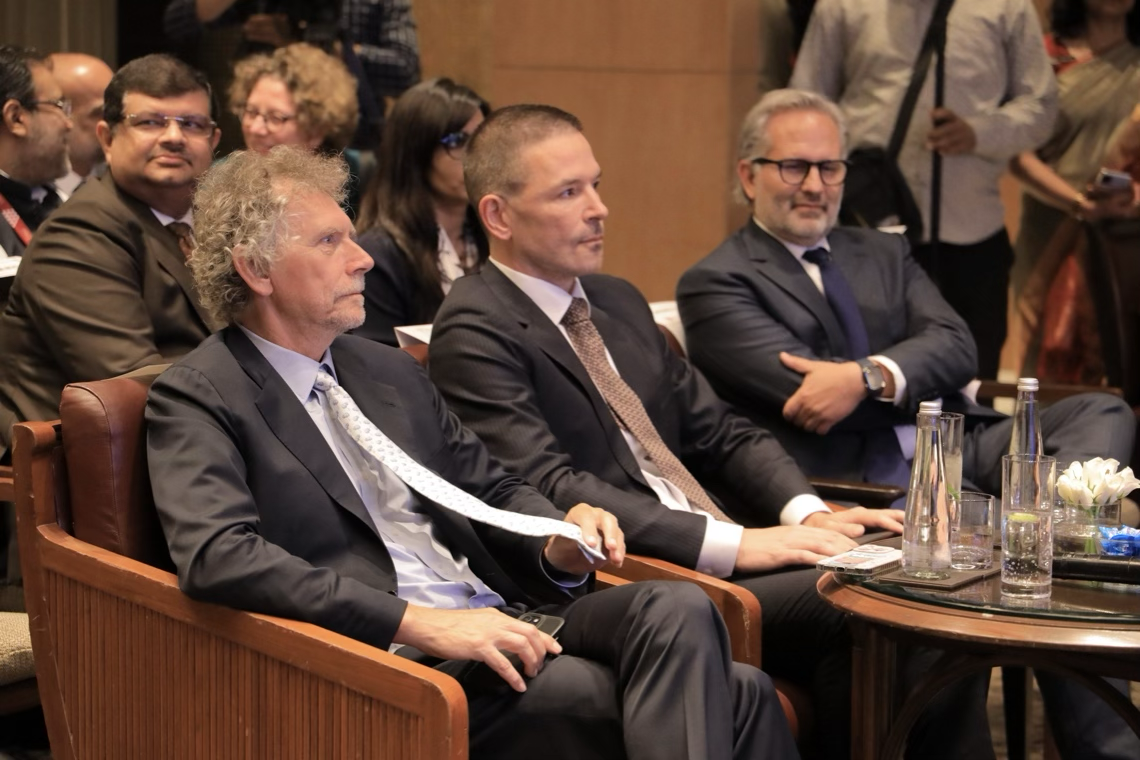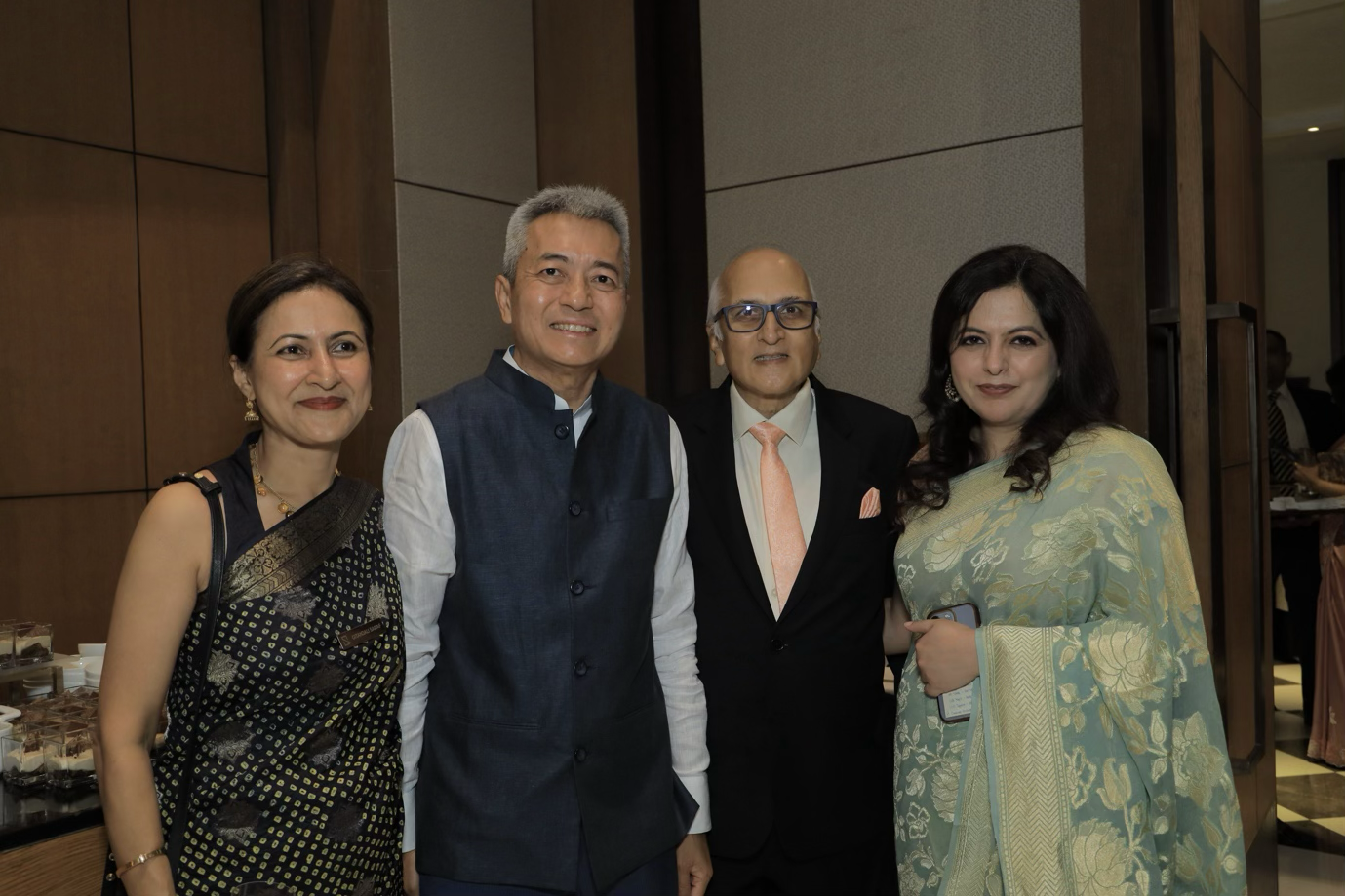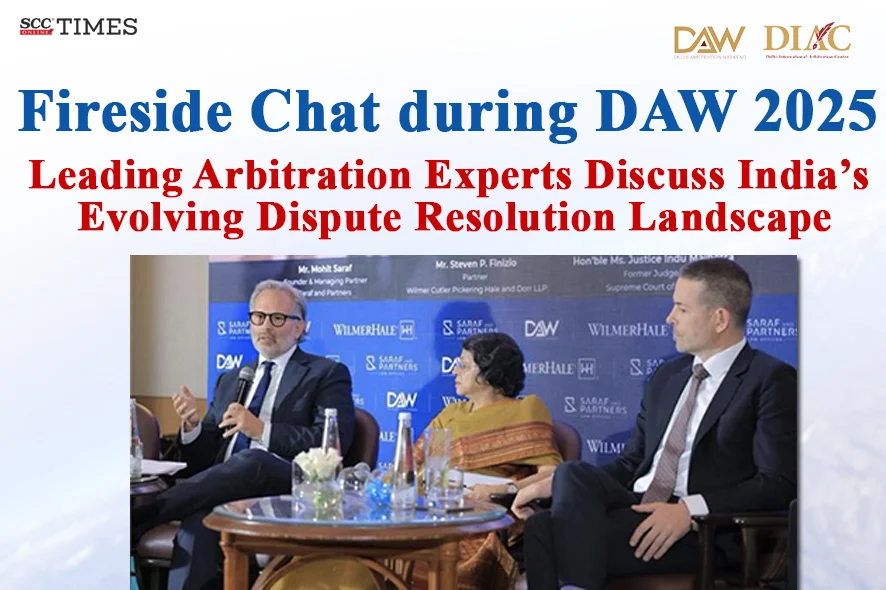The event took place on 20-09-2025 at The Oberoi, New Delhi, as part of the Delhi Arbitration Weekend (DAW) 2025. The evening brought together eminent jurists, global arbitration leaders, and members of the legal community to reflect on the future of arbitration and mediation in India.
Keynote Address by the Solicitor General of India
The session opened with a keynote by Mr. Tushar Mehta, Solicitor General of India, who spoke on “Reimagining Arbitration & Mediation: Building Trust, Speed & Global Competitiveness”. He stressed the need for strengthening India’s dispute resolution ecosystem to match global standards of efficiency and credibility.
Fireside Chat: Practical Insights for Corporate India
The highlight of the evening was a fireside chat featuring:
-
Justice (Retd.) Indu Malhotra, Judge, Supreme Court of India
-
Mr. Kevin Nash, Director General, LCIA
-
Mr. Steven P. Finizio, Partner, WilmerHale
Mr. Kevin Nash highlighted the safeguards of institutional arbitration, noting that awards undergo scrutiny or consultation before issuance, ensuring quality and consistency. He also observed that such awards are rarely set aside by courts, underscoring their credibility.
“Institutional arbitration awards go through a process of either a consultation or a scrutiny before they are issued, which helps ensure quality and consistency. The institutional rules also provide greater control over the process and costs. We track if our awards are set aside by courts and find that it is almost never the outcome – this speaks to the strength of the institutional model.”
Adding a global perspective, Mr. Steven Finizio stressed that clear procedural rules and timelines in institutional arbitration accelerate proceedings and reduce costs, making them more attractive for parties across jurisdictions.
“Institutional arbitrations are managed under clear procedural rules and timelines, which leads to faster conduct of proceedings and quicker results. Naturally, shorter timelines also translate into lower costs for the parties.”
Justice (Retd.) Indu Malhotra offered a nuanced view, noting that India’s diversity necessitates flexibility.
“India has a vast and diverse population with equally diverse disputes. It is important that both institutional and ad-hoc arbitration mechanisms remain available, so that parties can choose the process that best suits the nature of their disputes.”
Broader Themes
The panel also explored:
- Standardisation of arbitration procedures through legislation.
- Recent trends in arbitration jurisprudence in India.
- Institutional support required to strengthen mediation.
-
Developing a more robust damages framework aligned with India’s commercial realities.
Distinguished Attendance
The evening drew an illustrious gathering of jurists, including former Chief Justices of India Justice D.Y. Chandrachud and Justice Sanjiv Khanna, along with Justice Sanjay Kishan Kaul, Justice A.K. Sikri, Justice Vikramajit Sen, Justice Vineet Saran, Justice Ajay Rastogi, Justice Hemant Gupta, Justice Indu Malhotra, and Justice Hrishikesh Roy.

Several sitting judges of the Delhi High Court, including Justice Pratibha M. Singh, Justice Subramonium Prasad, Justice Anup Jairam Bhambhani, Justice Sachin Dutta, and Justice Tejas Karia, were also present. The event was further enriched by the presence of distinguished former judges such as Justice Mukul Mudgal, Justice J.R. Midha, Justice Jayant Nath, Justice Najmi Waziri, and Justice Rekha Palli.


Conclusion
The Fireside Chat highlighted India’s urgent need for faster, more efficient, and globally trusted dispute resolution mechanisms. With the participation of leading voices from India and abroad, the discussion served as both a reflection on current challenges and a roadmap for India’s journey toward becoming a preferred seat of arbitration and mediation worldwide.


